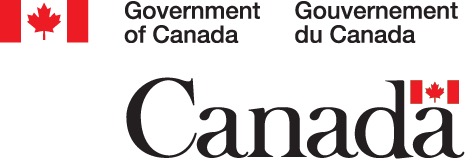
Feds Blasted for Keeping Public Feedback Secret Related to Online Harm Bill

According to the CBC News, social groups, businesses, and individuals who responded to the federal government’s call for feedback on its proposed online harms legislation are not happy with the government’s decision to not make the consultation documents public.
The Liberal government’s online harms bill seeks to increase the regulation and moderation of harmful material posted online. The bill proposes that a digital safety commissioner be appointed to force social media companies to weed out child pornography, terrorist content, hate speech, and other harmful posts from their platforms.
If passed, the online harms bill would give the Canadian Security Intelligence Service (CSIS) expanded access to user information from online platforms, and companies may also be required to report some kinds of content to relevant law enforcement departments.
Earlier this year, the government chose to release a summary of the feedback it received from the public instead of the consultation documents as a whole. While some groups and Canadians expressed support for the bill, most of the feedback expressed concerns over how much authority it would give the government and law enforcement over what Canadians do and share online.
The summary failed to represent feedback from many social media companies, groups, and Canadians who called the proposed plan as it stands “gravely, dangerously concerning,” “extremely problematic,” “horrible,” “un-Canadian in a very deep and disturbing sense,” and “an assault on freedom of expression.”
Some of the feedback even warned the bill could “inadvertently result in one of the most significant assaults on marginalized and racialized communities in years.”
“I was surprised when I first submitted the consultation and it wasn’t publicly posted,” said Jenna Scholz of Defend Dignity, an organization working to end sexual exploitation in Canada.
Scholz said her organization finds the standardized approach proposed by the government to various kinds of online harm, from hate speech to child pornography, worrying.
“Trying to couple all of those harms and take the exact same approach is really tough,” she said. “I think each and every one of those needs to have a very diverse, specific approach.”
Scholz, who wrote the Defend Dignity’s consultation submission for the proposed plan, said she was curious about what other groups had to say about it but couldn’t find anything. “I’m used to submitting for bills, and you can see what every stakeholder says.”
“It is embarrassing,” said Professor Michael Geist, Canada Research Chair in internet and e-commerce law at the University of Ottawa, who also participated in the consultation.
Geist, who constantly asked for the feedback to be made public, said he found the government’s “secrecy” over the documents “odd.”
“It took me by surprise in a really negative way when the government took the position that it was not going to disclose the submissions,” said Geist.
The bulk of the consultation documents only became public when Geist used Access to Information and Privacy laws to obtain 1,162 pages worth of feedback emails and letters on the online harms bill. Geist shared the documents on his blog late last month, saying “the entire consultation process is an absolute embarrassment to the government.”
The retrieved consultation documents revealed that the government’s plans were blasted by Twitter, TikTok, Microsoft, Pinterest, the Business Software Alliance, and more, all heavily criticizing the proposal. Twitter, which is set to be acquired by Tesla and SpaceX CEO Elon Musk for $44 billion USD, likened the government’s proposal to content regulation enforced in authoritarian states like China, North Korea, and Iran.
Fatema Abdalla, a spokesperson for the Ottawa-based National Council of Canadian Muslims, said the organization is gravely concerned about the bill’s use of the term “terrorist activity, terrorist content, and terrorism,” and how it will disproportionately affect Muslims.
“These terms are the same terms that have led many Muslims to be impacted and marginalized as well as prosecuted and incarcerated post 9/11,” she said. “We can’t let the government risk worsening that pattern in the name of national security.”
The office of Heritage Minister Pablo Rodriguez, meanwhile, has defended the government’s decision to conceal the raw consultation documents by saying it was meant to ensure respondents’ privacy and encourage them to share sensitive information, should they wish to.
“This includes business information shared in confidence by industry stakeholders. It also includes perspectives and stories from victim groups, equity-deserving communities, and other parties who wished to share their experiences facing harm online privately,” Laura Scaffidi, a spokesperson for the Heritage Minister’s office, wrote in an email to CBC.
“The government is conscious of these limitations and sensitive to the needs of those who participated in the consultation. That is why the government did not publish raw submissions to the consultation.”

